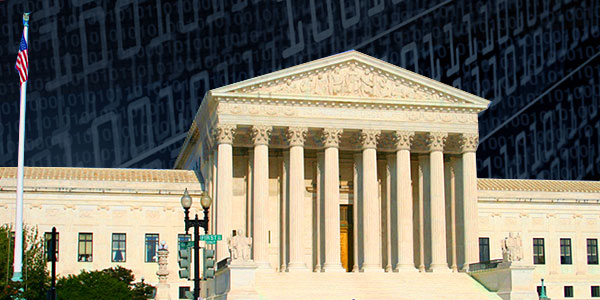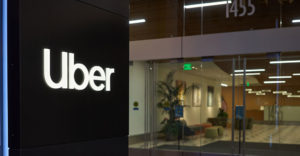The United States Supreme Court on Monday gave thumbs up for a class action antitrust lawsuit to proceed against Apple for alleged monopolistic practices at its App Store.
In the case, Apple Inc. v. Pepper et al., the consumer plaintiffs maintain the Cupertino, California, company has monopolized the retail market for the sale of apps, and that it used its position to charge higher-than-competitive prices for the software it sells in its App Store.
Apple tried to keep the case from advancing in the courts by arguing that it doesn’t set the prices for software it sells at the App Store. The developers of the software set the prices, so the company has only an indirect relationship to pricing.
In a previous decision, Illinois Brick Co. v. Illinois, the Court ruled that antitrust lawsuits could be filed only against a company that had direct control over prices paid by a plaintiff.
The Supreme Court, in a 5-4 opinion written by Justice Brett Kavanaugh, didn’t buy Apple’s logic.
“The plaintiffs purchased apps directly from Apple and therefore are direct purchasers under Illinois Brick,” he wrote.
“At this early pleadings stage of the litigation, we do not assess the merits of the plaintiffs’ antitrust claims against Apple, nor do we consider any other defenses Apple might have,” Kavanaugh continued. “We merely hold that the Illinois Brick direct-purchaser rule does not bar these plaintiffs from suing Apple under the antitrust laws.”
Supply Chain Logic
In the 1977 case, Illinois Brick Co. v. Illinois, the Illinois Brick Company made and distributed concrete blocks that it sold to masonry contractors who sold them to general contractors who used them in projects for the State of Illinois.
When the state sued the brick company for an alleged conspiracy to fix the price of concrete blocks, which resulted in the state paying more for the building material, it was rebuffed by the Court.
The justices at the time ruled that the state could not bring an antitrust lawsuit against Illinois Brick because the state had not purchased concrete blocks directly from the company.
While it’s true that Apple doesn’t set the prices for apps, it does sell apps directly to consumers and collect a 30 percent commission on every app sale.
“In this case, unlike in Illinois Brick, the iPhone owners are not consumers at the bottom of a vertical distribution chain who are attempting to sue manufacturers at the top of the chain,” Kavanaugh wrote.
“There is no intermediary in the distribution chain between Apple and the consumer,” he continued. “The iPhone owners purchase apps directly from the retailer Apple, who is the alleged antitrust violator. The iPhone owners pay the alleged overcharge directly to Apple.”
Apple Gerrymandering
Kavanaugh maintained that the Illinois Brick case sought to ensure an effective and efficient litigation scheme in antitrust cases.
“The Court drew a bright line that allowed direct purchasers to sue but barred indirect purchasers from suing,” he wrote. “When there is no intermediary between the purchaser and the antitrust violator, the purchaser may sue.”
Kavanaugh also attacked Apple’s “we don’t set the price” arguments.
“Apple’s effort to transform Illinois Brick from a direct-purchaser rule to a ‘who sets the price’ rule would draw an arbitrary and unprincipled line among retailers based on retailers’ financial arrangements with their manufacturers or suppliers,” he wrote.
“Apple’s line-drawing does not make a lot of sense, other than as a way to gerrymander Apple out of this and similar lawsuits,” Kavanaugh added. “In sum, Apple’s theory would disregard statutory text and precedent, create an unprincipled and economically senseless distinction among monopolistic retailers, and furnish monopolistic retailers with a how-to guide for evasion of the antitrust laws.”
Dissenting Opinion
Not all of the justices agreed with Kavanaugh’s reasoning for the Court’s majority.
Justice Neil Gorsuch who, like Kavanaugh, was appointed to the Court by President Donald J. Trump, argued in a dissenting opinion that the majority’s view could open a nasty can of worms.
If the 30 percent commission Apple charges to sell through its platform is a monopolistic overcharge, Gorsuch noted, the developers are the ones injured by it.
“Plaintiffs can be injured only if the developers are able and choose to pass on the overcharge to them in the form of higher app prices that the developers alone control,” he wrote.
“Because this is exactly the kind of ‘pass-on theory’ Illinois Brick rejected, it should come as no surprise that the concerns animating that decision are also implicated,” Gorsuch continued.
“Like other pass-on theories, plaintiffs’ theory will necessitate a complex inquiry into how Apple’s conduct affected third-party pricing decisions,” he added. “And it will raise difficult questions about apportionment of damages between app developers and their customers, along with the risk of duplicative damages awards.”
What’s more, it is easy to evade the majority’s test for standing in an antitrust case. All Apple has to do is have consumers pay developers directly, then take its 30 percent cut, Gorsuch pointed out.
“No antitrust reason exists to treat these contractual arrangements differently, and doing so will only induce firms to abandon their preferred — and presumably more efficient — distribution arrangements in favor of less efficient ones, all so they might avoid an arbitrary legal rule,” he wrote.
Kavanaugh’s Obamacare Moment
With its decision, the Court has sent a message to the tech sector, maintained Jerry Flanagan, litigation director for Consumer Watchdog, a consumer advocacy group based in Los Angeles.
“Today’s decision is a major victory for consumers and will open the door to litigation against corporations where the public is the ‘end user’ of products and ultimately pay more or are harmed by market manipulation,” he told TechNewsWorld.
“Apple and other tech giants will need to be focused on how their business practices affect consumers, not just app developers who can pass costs on,” added Flanagan.
Consumers could benefit from an expansion of the Apple app market, but they could be harmed by it, too.
“Consumers would have access to more third-party apps outside of Apple’s controlled ecosystem,” noted Tim Bajarin, president of Creative Strategies, a technology advisory firm in Campbell, California.
“But they do that at their own risk,” he told TechNewsWorld. “It could uncouple the apps from Apple’s stellar security and expose people’s devices to more malware and security threats. “
Although Apple is at the center of the Pepper case, the litigation could have ramifications for other online outlets using a business model similar to Apple’s, noted Charles King, principal analyst at Pund-IT, a technology advisory firm in Hayward, California.
“At the least, the ruling is likely to make the companies involved in those online outlets rethink and probably revise the way payments are made and managed,” he told TechNewsWorld.
“Along with Apple, the ruling was also a slap at the Trump administration, the U.S. Chamber of Commerce, and a raft of politically involved tech industry titans,” King observed.
“That the ruling hinged on the vote of Brett Kavanaugh, a Trump appointee, probably shocked quite a few folks,” he said.
“This is Justice Kavanaugh’s Obamacare moment,” said Consumer Watch’s Flanagan. “Kavanaugh is making a clear statement he shouldn’t be counted as a rubber stamp for big business.”






















































